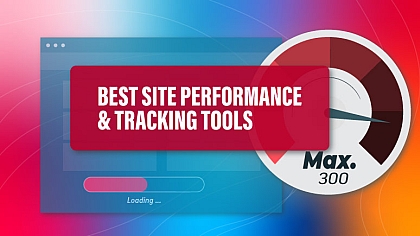Simple Ways To Make Your Blog More SEO Friendly

Having a blog has so many benefits for a business, from providing users with engaging content to refreshing your website with new content. Something that many people oversee is the potential to attract new people to your website through your blog, through SEO.
There are a few things you can do to optimise your blog posts for SEO, so that when people are searching for articles, your website will appear high up in the search results. So, let’s find out some simple first steps you can take towards doing this!
Do Your Keyword Research
The first thing you should do is keyword research, to identify the kinds of terms that people are searching for related to your blog topic idea. For example, you might want to write a blog about “Easy Gym Hairstyles”, so you can conduct keyword research to find out how many people are searching for that keyword and when it is most popular. From here, you can decide when it is the best time to post that particular blog to make sure it gains the most traction.
Sometimes you might have an idea but find out no one is searching for topics relating to your idea, so you may need to reconsider.
Once you have chosen your keywords and know then each of them are most popular, you can put them into a content calendar, which you can create based on when the keywords are popular and also which blogs are relevant at which time of year.
Overall, keyword research is the best place to start to identify topics people are interested in and to help you decide when you should be publishing the content!

Mention The Keyword
Now that you’ve decided on your topic and you’ve started to write it, you need to mention the keywords you have identified throughout the blog. By doing this, when Google reads the content, they will be able to pick up the mentions of the keyword. Then, when they are deciding who should appear high up in the search engine results for that particular keyword, they will see your blog as a good result as it has been mentioned throughout.
Make sure to keep this natural, as if you use the exact keyword too many times throughout, it will be flagged as spammy. So, instead, try to naturally mention the keyword where possible, whilst making sure it always looks like the mention is naturally occurring.
Don’t Forget Internal Links
Our next tip is to make sure that you are including internal links to other pages on your website. This is really important for many reasons, one being it helps users explore more content on your website and guides them in the right direction. In terms of SEO, internal linking helps Google to find all of the pages on your website easier, which then helps you to appear further up in the search engine rankings. An example would be if you are writing a blog post about the best date night spots in London, and you happen to sell going-out dresses, then you would link to them in the blog.
Make sure that the words you are using to insert the link, known as the anchor text, are accurate. For example, if you use “click here” to guide users to a page, Google won’t be able to process how the two pages are related. Instead, choose something highly related to the page you are sending the user to.
Have A Clear Heading Structure
Last but not least, you need to make sure that you have a really clear heading structure. By this, you should have a Heading 1, with a short intro underneath. Then, all the subsequent headings would be assigned Heading 2’s. If you want to include headings within the Heading 2’s, then you’d assign Heading 3’s, and so on. This helps Google to understand which parts are the most important in the content, and having clear headings is good for accessibility purposes, which Google will reward you for with rankings.
Whilst optimising your blogs for SEO may take some preparation, you will reap the benefits when new people find your brand and you are expanding your potential audience more than you ever thought possible. So, put some time aside to get this right and you certainly won’t regret it!














